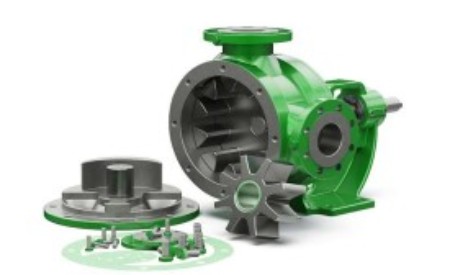

Home » Gear pump
Maintenance & Troubleshooting
RECOMMENDED OPERATIONAL CHECKS:
Below is a list of recommended operational checks that will enable operators to extend the life of the pump and avoid
any unnecessary damage.
Regularly check the following:
* Noise, vibration and heat levels.
* Abnormal leakages.
* Flow Rates & Discharges Pressures to ensure that they are within the usual and expected ranges. Having a Flow
Meter and Suction & Discharge Pressure Gauges / Sensors are recommended.
* Elastic parts on the Coupling (if present).
* Electrical Current Draws on the motor. If higher than normal this is generally an indication of elevated discharge pressures or blockages within the pump or pipework.
OTHER RECOMMENDATIONS:
All valves on auxiliary systems should be OPEN.
* If the pump is equipped with a Packed Gland a certain amount of leakage (small drips) is expected. However, if
after prolonged periods of operation this leakage increases then tighten the nuts on the packing press until the
leakage level reverts back to normal. If the nuts are tightened fully then replace the packing gland.
* If the pump is Mechanically Sealed then no leakage should be expected. If leakage is detected then this indicates
that the mechanical seal faces have been damaged and the seal needs replacing. The lifetime of the seal is
application and usage dependent, if you are exp
| Malfunction | Possible cause | Remedy |
|---|---|---|
| No Flow whilst the pump is ON | Wrong direction of rotation Air Pockets in the Suction Line Check Valve Jammed / Blocked Insufficient Sealing on Pipework or Pump causing Air Ingress |
Reverse rotational direction by inverting wiring on motor Fill the Suction Line Manually and discharge all air left in the line Clean/Repair/Replace Check Valve Check and Seal the Suction Line & Change Pump Seal, if necessary |
| Insufficient Capacity and/or Pressure | Check Valve Jammed / Blocked Air Leakage Elevated NPSHr Pump is excessively worn Safety Valve / PRV is Open or is set too low |
Clean/Repair/ Replace Check Valve Check and Seal the Suction Line & Change Pump Seal, if necessary Shorten Length and / or Increase the ø of the Suction Pipework Reduce Manometric Suction Head Move pump closer to the fluid source Check Rotor Gear Spacing, decrease tolerance by removing Washers, if necessary Adjust Set Pressure & Check Valve Mechanism for Blockages |
| Pump is making Irregular Noise | Cavitation-Manometric Suction Head is too high Rotor/Gear Damage Pump is misaligned with Drive Assembly Vibration Noise coming from Safety Valve / PRV |
Shorten Length and / or Increase the ø of the Suction Pipework Reduce Manometric Suction Head Move pump closer to the fluid source Check Filters/Strainers on Suction Line Check Gears & change, if necessary Correct using Washers & Spacers & Laser Re-Alignment Adjust Set Pressure & Change, if necessary |
